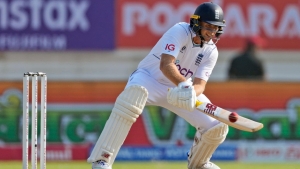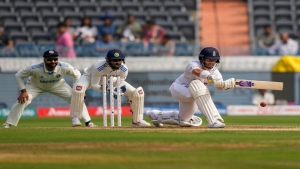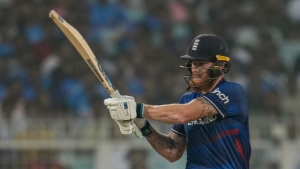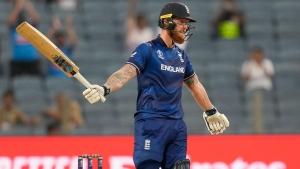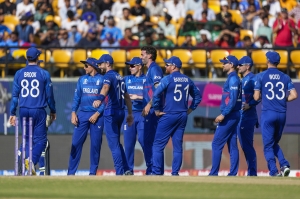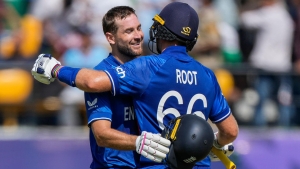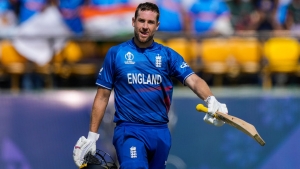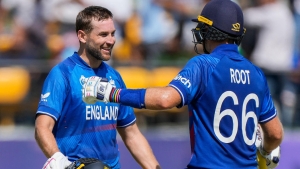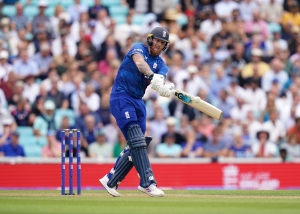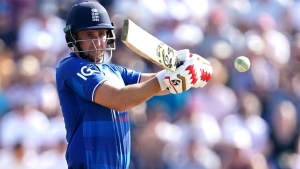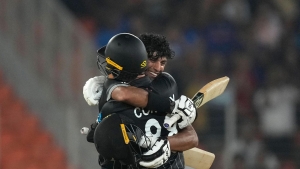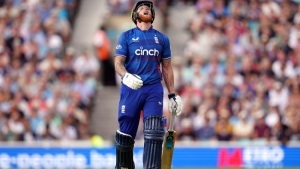An outstanding century from Dawid Malan and Reece Topley’s eye-catching return put England’s World Cup defence back on track as they hammered Bangladesh by 137 runs in Dharamshala.
The 2019 champions were bruised by a thumping loss to New Zealand in the tournament opener but banked a handsome win of their own to cap their visit to the outer ranges of the Himalayas.
Malan was the architect, rolling out a career-best 140 in 107 balls as he carried England to 364 for nine with a fourth century in his last nine innings.
At one stage they would have backed themselves to post 400, but a flurry of wickets at the back end kept them to a less flashy figure.
It was still their biggest World Cup total on foreign soil and easily enough to get the job done against outmatched opponents who were railroaded by Topley on his recall to the starting XI.
England bolstered their pace attack by swapping out spin-bowling all-rounder Moeen Ali for the 6ft 7in left-armer and it proved an inspired decision as Topley blew away the Bangladesh top order and finished with four for 43.
He took two in two balls in his opening over, clean bowled captain Shakib Al Hasan with a wonderful ball and circled back for the battling Mushfiqur Rahim.
He was the pick of the pack throughout and will take some budging from the teamsheet now.
Bangladesh lost their way entirely with the bat, ambling aimlessly to 227 all out and helping repair much of the previous damage to England’s net run-rate.
Malan was only inked into the starting XI last month, embarking on a compelling run of late summer form just as the selectors were losing faith in the form and fitness of Jason Roy.
A lethargic start against the Black Caps in Ahmedabad did not show him at his best, but the 36-year-old removed any doubt about his readiness with a wonderfully-paced knock.
His first 50 runs came in a hurry, taking just 39 balls, and, after taking 52 more to convert his half-century, he showed off some extra gears by slamming 40 off his last 16 deliveries.
Malan’s ambitious streak was evident from the outset, with two glorious sixes off Mustafizur Rahman the highlight of England’s 61-run powerplay.
The first saw him stoop low enough to engineer a slog-sweep over deep square, a shot requiring equal parts bravery and timing, and the second saw him stand tall and pull hard.
When Bangladesh retreated to spin he took a different method, rarely allowing himself to go aerial, threading his shots into gaps and pulling out a reverse sweep against the steadying hand of Shakib.
He took the lion’s share of a 115-run partnership with Jonny Bairstow (52), who had earlier joined England’s 100-cap club after a presentation from former captain Eoin Morgan and was looking solid until Shakib snuck one into his leg stump.
Malan also outscored Joe Root in the decisive third-wicket stand of 151 that kept England ticking for almost 20 overs.
Root, who emerged alone in credit against the Black Caps thanks to a well-made 77, was calm and controlled again, cutting loose only briefly to reverse ramp Mustafizur for six.
In reaching 82 he moved past Graham Gooch as England’s leading run-scorer in World Cup cricket, easing past his mark of 897.
When Malan departed in the 38th over, after unloading a torrent against Mehedi Hasan, he had left the power-hitters in the middle order a perfect platform of 266 for two.
To score 98 more for the loss of seven wickets was an underachievement, down in no small part to Sofiul Islam, who removed Jos Buttler, Root and Liam Livingstone in the space of nine deliveries.
Despite that, they already had more than enough, with Topley’s new ball showing settling the issue.
Having watched from the sidelines as England took a single wicket last time out, he doubled that tally in his first over.
His fourth delivery swung enough to take Tanzid Hasan’s outside edge and carried to second slip and his second left Najmul Shanto as he sprayed to backward point.
Shakib survived despite misreading the hat-trick ball but was soon undone by something even better, beaten on the outside edge by one that held its line and clipped the top of off.
When Chris Woakes nicked off Mehidy Hasan Miraz it was hard to see a way back from 49 for four and they never really attempted to tackle the spiralling required rate.
Liton Das (76) and Mushfiqur (51) made England work before Woakes and Topley returned to add to their hauls, but the sense of any danger had long disappeared.
Livingstone countered his first-ball dismissal with the bat by producing a first-ball wicket of his own and Adil Rashid opened his account in his 16th over of the tournament.
Bangladesh’s passivity saw them survive almost until the end, but Mark Wood and Sam Curran hit the stumps late on to wrap things up.





















